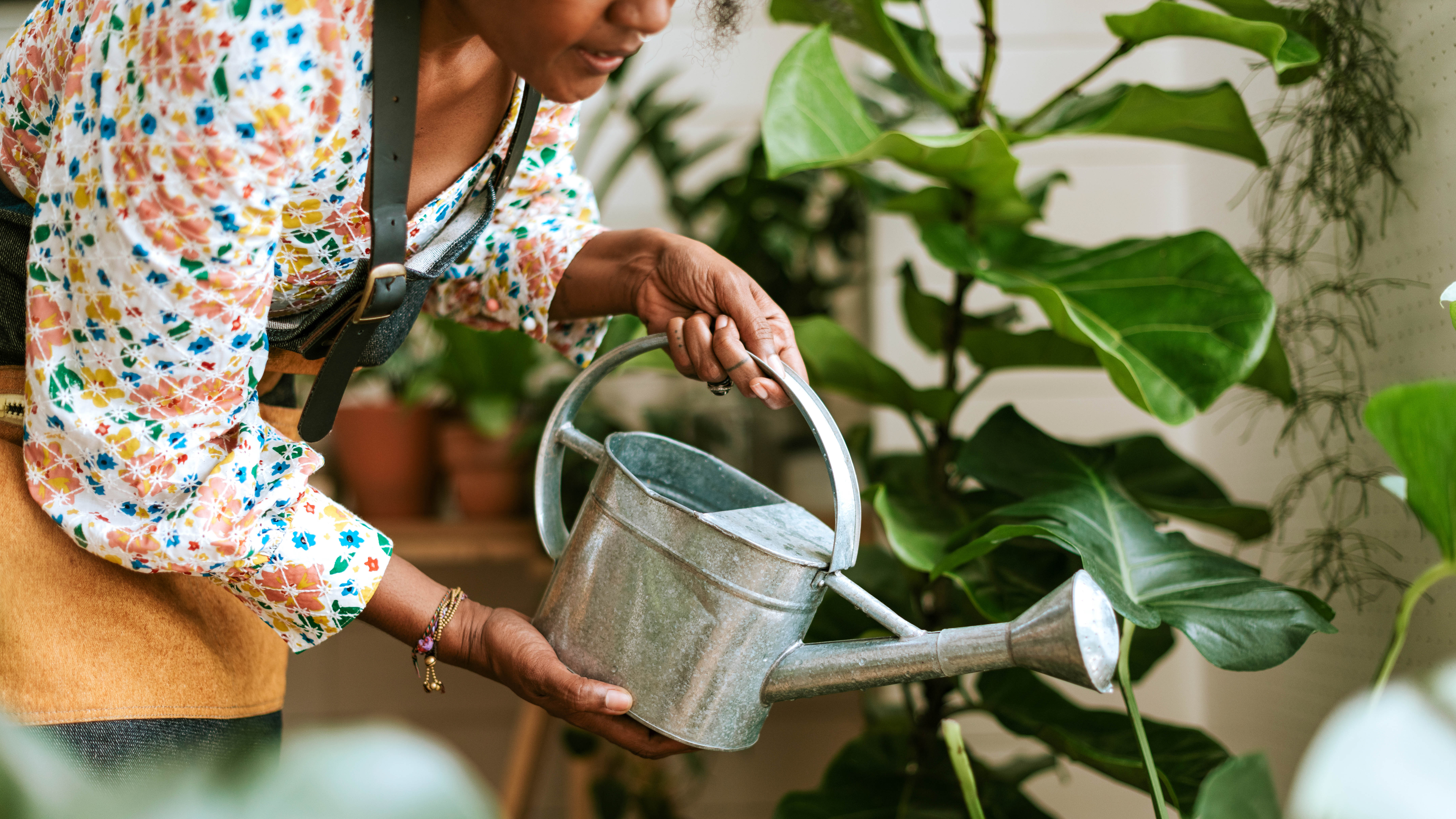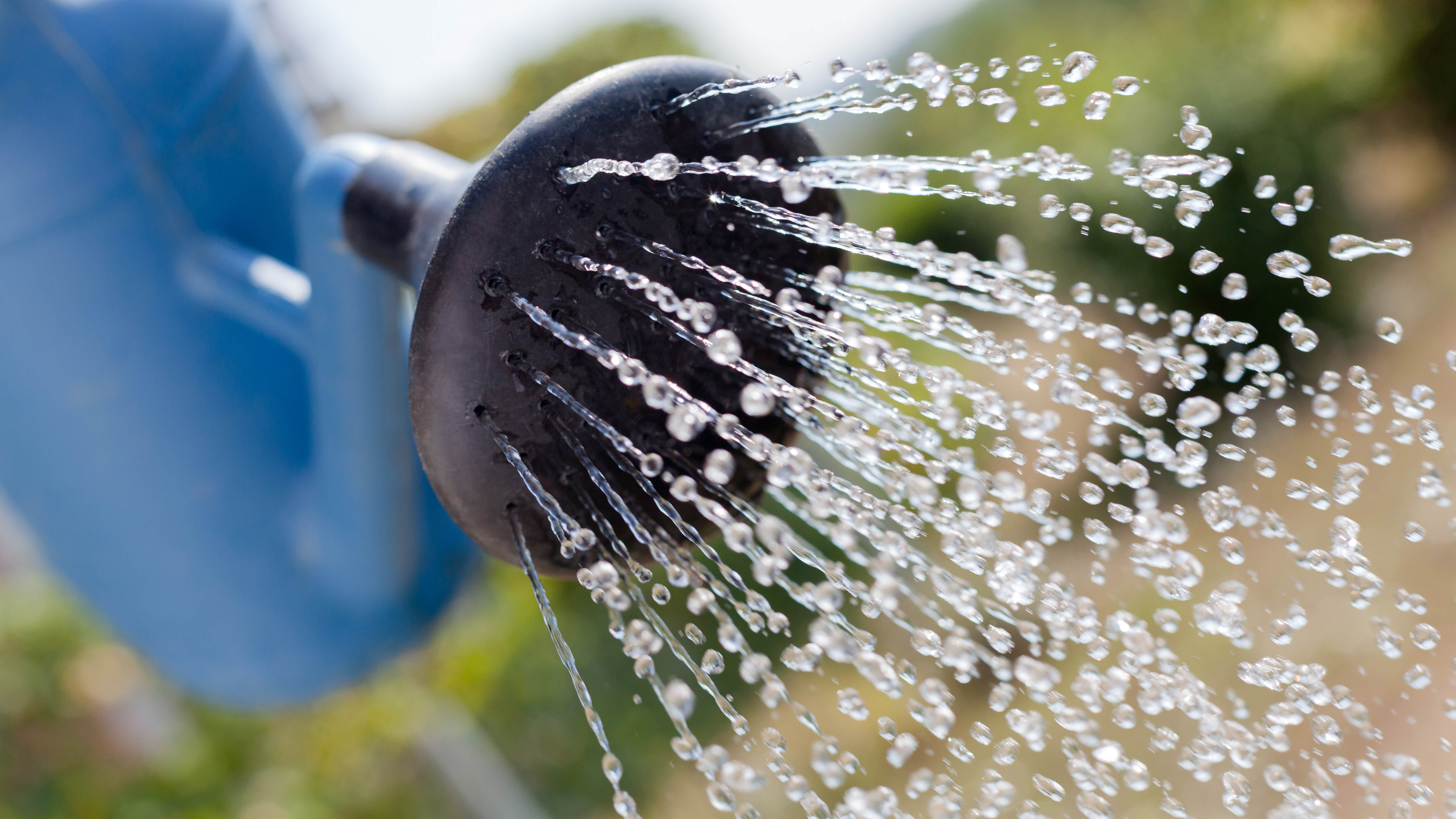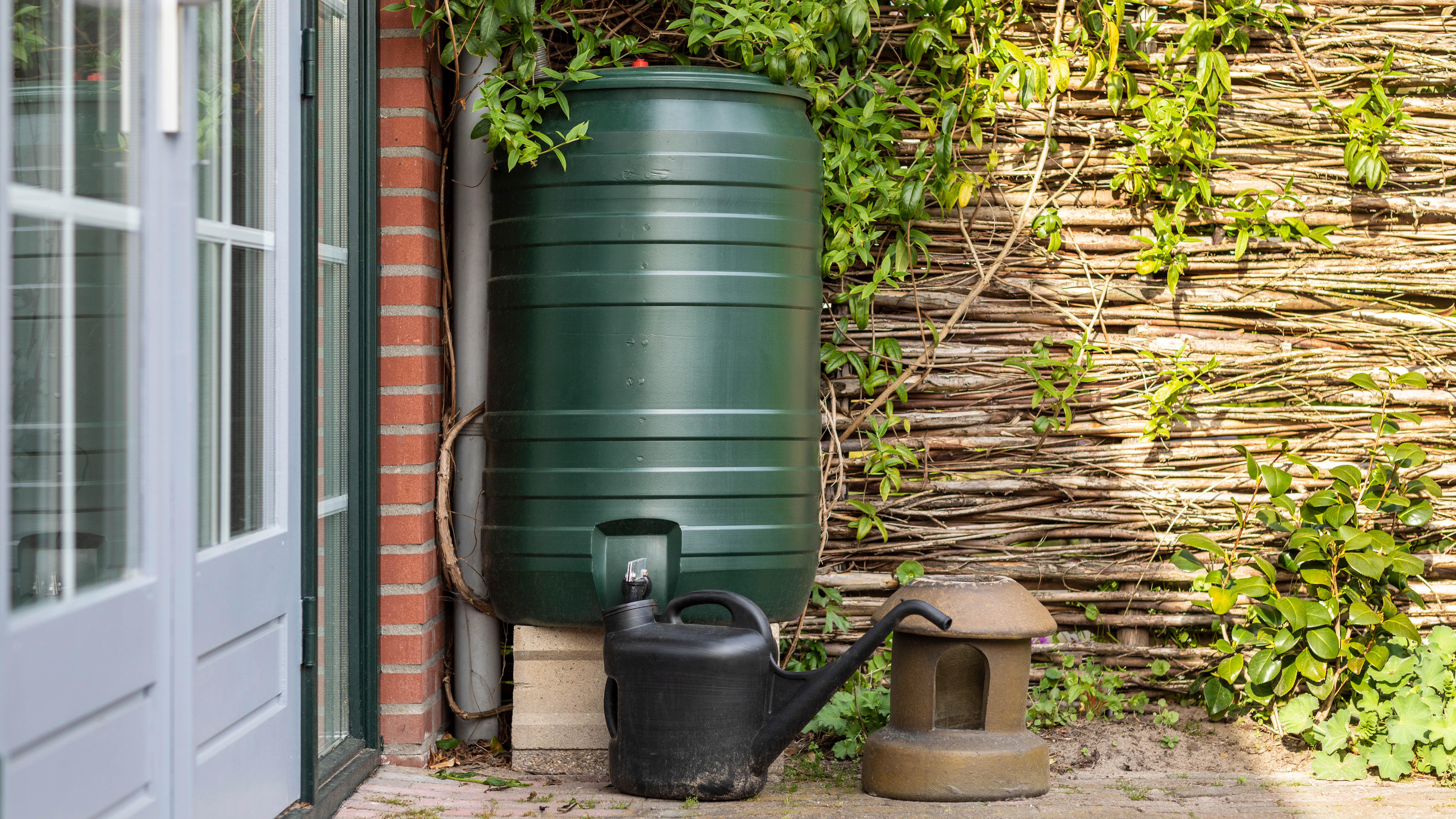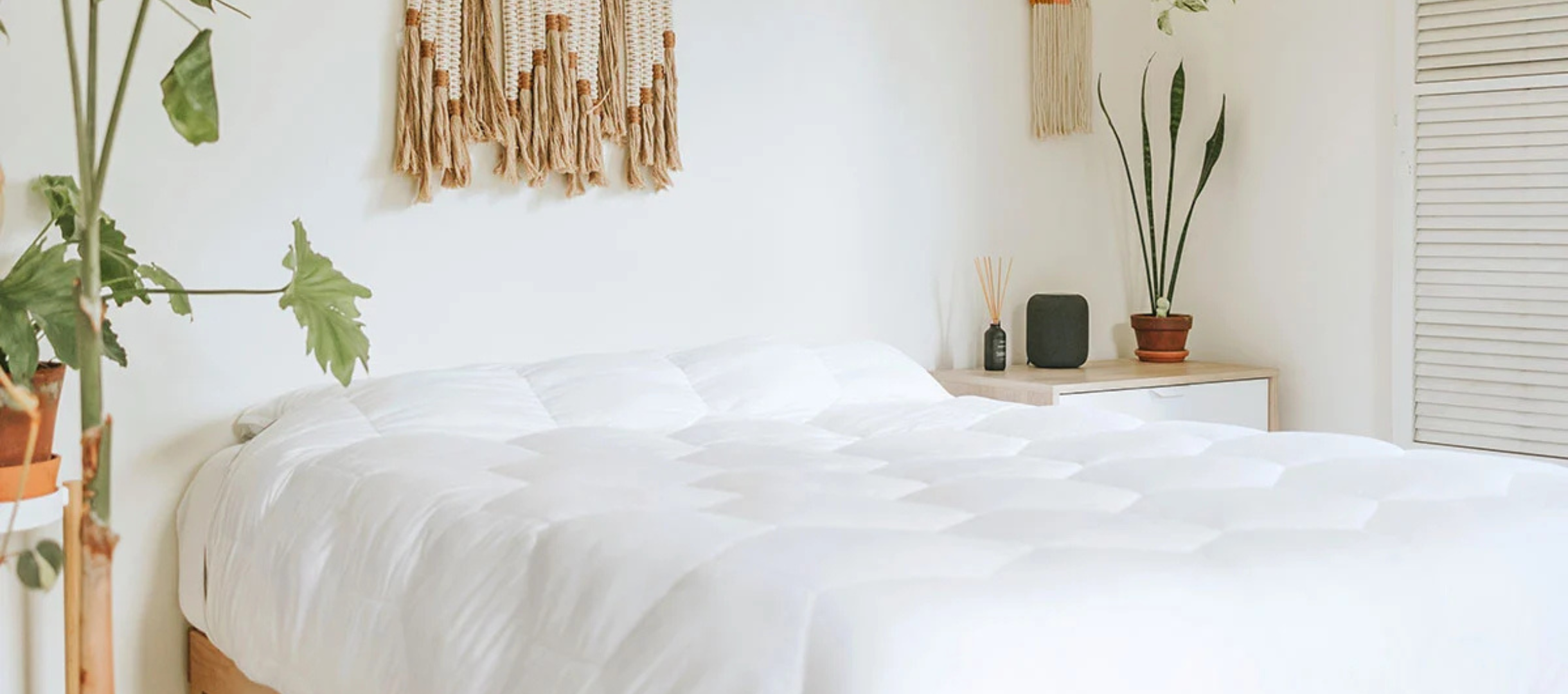Here's why soft water is bad for your plants — according to experts
Softened water may be good for some things, just not for our precious plants

Whether you have a green thumb or a beginner, everyone knows that watering is an essential part of plant care to help them grow and thrive.
And while this might seem simple enough, we're often guilty of making common plantcare mistakes, such as overwatering or underwatering. But did you know that using the right type of water can also affect the growth of your favorite plants?
Although there has been much debate, experts warn against using softened water on your plants and yard. While a water softener may be a godsend for those living in hard water areas, and helps to reduce limescale — this is bad news for plants. In fact, you could run the risk of seriously damaging the root, growth or killing your plants in the long run!
So, if you want to ensure healthy plants, here's why soft water is bad for your plants — according to experts.
Why softened water is bad for your plants

Although softened water has benefits when it comes to reducing limescale in pipes and drains, it’s not ideal for watering plants. This is because softened water contains a high level of sodium that can deplete the essential nutrients that plants need to sustain healthy growth.
“Few people are aware that it’s not just important to water your plants but to ensure you’re using the right type of water,” advises Gene Fitzgerald, home water treatment expert at BOS. “The introduction of excess sodium (salt) is terrible for most plants if the levels are extremely high. Sodium also counteracts other essential minerals such as calcium and potassium.
These are needed by the plants so the sodium can actually affect the plant’s ability to absorb such nutrients and affect its overall health. Sodium also has an impact on the soil quality over time as it alters its ability to hold water as well as the soil structure.”
Sign up to get the BEST of Tom's Guide direct to your inbox.
Get instant access to breaking news, the hottest reviews, great deals and helpful tips.
So if your plants are showing signs of damage or wilting, this could well be the fault of your water. “Water softeners increase the amount of sodium that is present in the water which could damage roots and result in stunted growth,” agrees Chris Bonnett at GardeningExpress.co.uk. “There is also a slight cause for concern if the tap water contains strong elements of lead and chlorine.”
What type of water is best for your plants?

If you do have a water softener installed, however, it’s not the end of the world. Instead, you might want to consider other types of water that will be better for your plants. ”The best type of water to use for your plants is actually rainwater,” advises Fitzgerald, ”this is because it's naturally free from chemicals and soft on plants.”
There are several ways to collect and reuse rainwater, but the easiest way is to install a rain barrel/water butt. “If your water is okay for you to drink, then it's okay for your plants, but if you really want to help them, it’s worth installing a water butt,” suggests Bonnett. “Rainwater collected by a water butt is a better option for your plants as it’s free of chlorine and other chemicals which can be found in tap water. It’s also rich in nutrients that your plants will love!”
In addition, filtered water is an option, since it will have most of its sodium content taken out. “Alternatively, you could also use RO (reverse osmosis) filtered water as this will have most of its sodium content removed,” agrees Fitzgerald, “If you don't have this and it hasn't rained in a while, allow a glass of tap water (unsoftened) to sit for a few hours and then water your plants with it. This can help some of the chemicals to settle and remove themselves naturally.”
The idea is to eliminate any traces of sodium or any other potentially harmful chemicals that are found in the water — which can affect plants and soil.
Of course, each plant species has different care needs and requirements. So it's important to research your species and follow guidelines on the label of how much water your plants need individually.
More from Tom's Guide

As the Homes Content Editor, Cynthia Lawrence covers all things homes, interior decorating, and garden-related. She has a wealth of editorial experience testing the latest, ‘must-have’ home appliances, writing buying guides and the handy ‘how to’ features.
Her work has been published in various titles including, T3, Top Ten Reviews, Ideal Home, Real Homes, Livingetc. and House Beautiful, amongst many.
With a rather unhealthy obsession for all things homes and interiors, she also has an interior design blog for style inspiration and savvy storage solutions (get rid of that clutter!). When she’s not testing cool products, she’ll be searching online for more decor ideas to spruce up her family home or looking for a great bargain!
